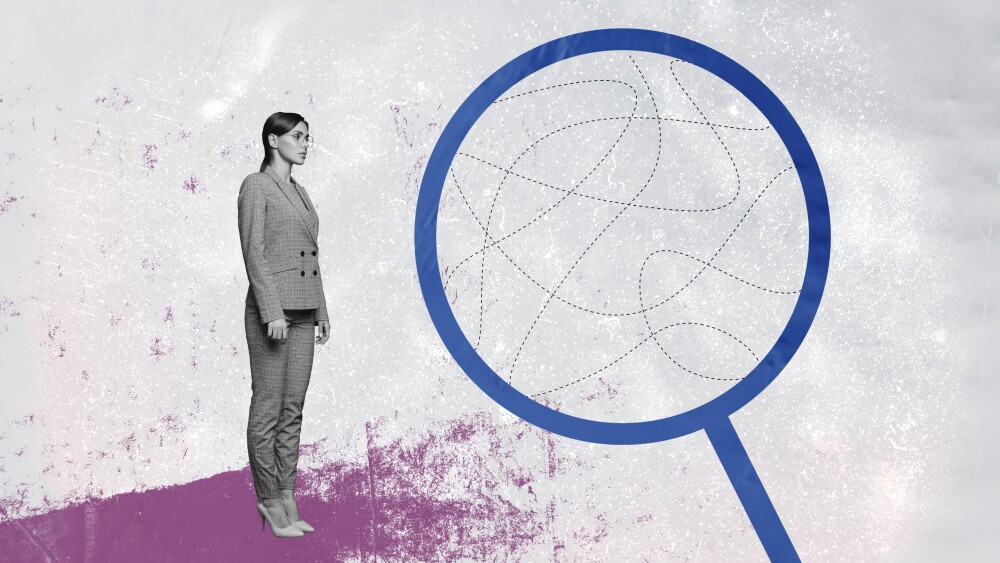"The data presented at AASLD continue to suggest that Albuferon may offer efficacy at least comparable to pegylated interferon for treatment-naive patients, with similar safety, fewer injections and the potential to improve health-related quality of life," said David Nelson, M.D., Associate Professor of Medicine, Medical Director of Liver Transplantation, and Chief of the Hepatobiliary Disease Section, University of Florida. "Importantly, in the Phase 2 non-responder study at the final 24-week follow-up point after the end of 48 weeks of treatment, we observed a low rate of relapse and an overall rate of sustained virologic response of 21% in the 900-mcg and 1200-mcg Albuferon treatment groups in a patient population that was heavily pretreated. Furthermore, at Week 24, the 1800-mcg Albuferon dose cohort showed the highest rate of HCV RNA negativity in the difficult-to-treat subgroup of genotype 1 patients who previously failed to respond to treatment with pegylated interferon and ribavirin. We look forward to continuing the evaluation of Albuferon at these higher doses over the full term of the current study."
"The results emerging from our Phase 2 program continue to build support for our belief that Albuferon could become an important therapeutic option for patients with chronic hepatitis C," said Mani Subramanian, M.D., Ph.D., Senior Director of Clinical Research, Infectious Diseases, Human Genome Sciences. "I am particularly encouraged by the robust antiviral activity demonstrated by the 1800-mcg Albuferon dose in patients infected with genotype 1 hepatitis C who have not responded to previous treatment with the current standard-of-care. These interim results, along with safety data generally similar to that observed in the lower-dose treatment groups, encourage us to evaluate a regimen in interferon-naïve patients that combines higher doses of Albuferon with administration every four weeks. More immediately, we look forward to initiating Phase 3 trials of Albuferon in treatment-naïve patients before the end of 2006."
About the Phase 2 Interim Results in Non-Responders to Previous HCV
Therapy
Interim results were presented from the Phase 2 trial of Albuferon in combination with ribavirin in patients with chronic hepatitis C who failed to respond to previous interferon alpha-based treatment regimens. The results of the open-label, multi-center, dose-escalation study suggest that the combination of Albuferon with ribavirin was safe, well tolerated and effective at doses up to 1800 mcg every two weeks.
Data through Week 72 are available for 71 patients who were enrolled and randomized into 3 Albuferon treatment groups (900 mcg every 2 weeks, 1200 mcg every 2 weeks, and 1200 mcg every 4 weeks). The total study duration includes 48 weeks of treatment plus 24 weeks of follow-up. All patients received Albuferon subcutaneously and received weight-based oral ribavirin daily. The overall end-of-treatment rate (ETR), defined as undetectable virus at the end of 48 weeks of treatment, was 31% (22/71) in the 900-mcg and 1200-mcg treatment groups. The primary efficacy endpoint in the Phase 2 trial in non- responders is sustained virologic response (SVR), defined as undetectable virus 24 weeks after the end of 48 weeks of treatment. The overall SVR rate in the 900-mcg and 1200-mcg Albuferon treatment groups was 21% (14/68). The overall SVR rate was 13% (5/39) in the most difficult-to-treat subgroup of genotype 1 hepatitis C patients who failed to respond to previous treatment with a combination of pegylated interferon and ribavirin.
Data are available through Week 24 on 44 patients who were enrolled sequentially, following evaluation of safety data, into 2 additional treatment groups (1500 mcg and 1800 mcg, respectively, administered every two weeks). For genotype 1 non-responders to treatment with pegylated interferon plus ribavirin, the highest antiviral response rates at Week 24 were observed in the 1800-mcg treatment group. At Week 24, in this important subgroup, no detectable HCV RNA was observed in 17% (7/41) of the patients in the 900-mcg and 1200-mcg Albuferon treatment cohorts, 27% (4/15) of the patients in the 1500-mcg treatment cohort, and 32% (6/19) of the patients in the 1800-mcg treatment cohort. Overall, Albuferon in combination with ribavirin appears well tolerated, and the safety profile in the 1500-mcg and 1800-mcg treatment groups was comparable to the 900-mcg and 1200-mcg cohorts in type, incidence and severity of adverse events. Hematologic reductions stabilized by Week 8, were well managed with dose reductions, and returned to baseline following the completion of therapy.
About the Phase 2b Interim 24-Week Results in Treatment-Naive Patients
Interim results from the first 24 weeks of treatment were presented from a randomized, open-label, multi-center, active-controlled dose-ranging Phase 2b trial of Albuferon in combination with ribavirin in treatment-naive patients with genotype 1 chronic hepatitis C. The interim results suggest that Albuferon in combination with ribavirin was safe, well tolerated and showed robust antiviral activity in these patients.
Data are available through Week 24 on 458 patients who were randomized into four treatment groups, three of which receive subcutaneously administered Albuferon (900 mcg at two-week intervals, 1200 mcg at two-week intervals, and 1200 mcg at four-week intervals). The fourth treatment group serves as the active control group and receives 180-mcg doses of subcutaneously administered peginterferon alfa-2a (Pegasys) once every week. All patients receive weight- based oral ribavirin daily.
At Weeks 4, 12 and 24, the treatment arm receiving 1200-mcg Albuferon at two-week intervals had the highest percentage of subjects who were negative for HCV RNA and also had the most rapid time to HCV RNA negativity. At Week 12, the following percentages of patients had HCV RNA below the level of quantitation (43 IU/mL): 66% (75/114) in the treatment group receiving 180- mcg doses of Pegasys once every week; 75% (82/110) in the treatment group receiving 1200 mcg of Albuferon at two-week intervals; 70% (82/118) in the treatment group receiving 900 mcg of Albuferon at two-week intervals; and 53% (62/116) in the treatment group receiving 1200 mcg of Albuferon at four-week intervals. At Week 24, the percentages of patients with HCV RNA below the level of detection (<10 IU/mL) were: 76% (87/114) in the treatment group receiving 180-mcg doses of Pegasys once every week; 79% (87/110) in the treatment group receiving 1200 mcg of Albuferon at two-week intervals; 72% (85/118) in the treatment group receiving 900 mcg of Albuferon at two-week intervals; and 62% (72/116) in the treatment group receiving 1200 mcg of Albuferon at four-week intervals.
Through Week 24, based on the SF-36 Health Survey, the Albuferon treatment groups consistently performed favorably compared to PEGASYS in the mental health component summary measure. Patients in the Albuferon treatment groups also continued to record fewer disability days than were observed in patients receiving pegylated interferon. The treatment groups receiving 900-mcg Albuferon every two weeks and 1200-mcg Albuferon every four weeks reported less impairment of health-related quality of life in all SF-36 measures.
Albuferon in combination with ribavirin appears generally safe and well tolerated, with incidence of severe adverse events and grade 3-4 laboratory values comparable between treatment groups.
About Albuferon
Albuferon is a novel, long-acting form of interferon alpha, which was created by HGS using the Company's proprietary albumin fusion technology. This technology enables scientists to improve the pharmacological properties of therapeutic proteins by fusing the gene that expresses human albumin to the gene that expresses the active protein. Albuferon results from the genetic fusion of human albumin and interferon alpha 2b. Recombinant interferon alpha is approved for the treatment of hepatitis C, hepatitis B and a broad range of cancers.
Albuferon is being developed by HGS and Novartis under an exclusive worldwide development and commercialization agreement entered into in June 2006.
About Hepatitis C
Hepatitis C is an inflammation of the liver caused by the hepatitis C virus. It is the most common chronic blood-borne infection in the developed world. It is estimated that as many as 170 million people worldwide are infected with hepatitis C virus. This includes nearly four million people in the United States. When detectable levels of the hepatitis C virus in the blood persist for at least six months, a person is diagnosed as having chronic hepatitis C. The hepatitis C virus can cause serious liver disease in a significant proportion of infected individuals, leading to cirrhosis, primary liver cancer, and even death.
About Human Genome Sciences
The mission of Human Genome Sciences is to discover, develop, manufacture and market innovative drugs that serve patients with unmet medical needs, with a primary focus on protein and antibody drugs.
The HGS clinical development pipeline includes drugs to treat hepatitis C, lupus, anthrax disease, cancer, rheumatoid arthritis and HIV/AIDS. The Company's primary focus is rapid progress toward the commercialization of its two lead compounds, Albuferon(TM) for hepatitis C, and LymphoStat-B(TM) for lupus. Both compounds are expected to advance to Phase 3 clinical trials in 2006.
In June 2006, HGS announced that the U.S. Government exercised its option to purchase 20,000 doses of ABthrax(TM) for the treatment of anthrax disease. Other HGS compounds in clinical development include three TRAIL receptor antibodies for the treatment of hematopoietic and solid malignancies, in addition to an antibody to the CCR5 receptor for the treatment of HIV/AIDS.
For more information about HGS, please visit the Company's web site at http://www.hgsi.com. For more information about Albuferon, visit http://www.hgsi.com/products/albuferon.html. Health professionals or patients interested in inquiring about Albuferon clinical trials or any other study involving HGS products in development are encouraged to inquire via the Contact Us section of the company's web site, http://www.hgsi.com/products/request.html, or by calling us at (301) 610-5790, extension 3550.
HGS, Human Genome Sciences, ABthrax, Albuferon and LymphoStat-B are trademarks of Human Genome Sciences, Inc.
Safe Harbor Statement
This announcement contains forward-looking statements within the meaning of Section 27A of the Securities Act of 1933, as amended, and Section 21E of the Securities Exchange Act of 1934, as amended. The forward-looking statements are based on Human Genome Sciences' current intent, belief and expectations. These statements are not guarantees of future performance and are subject to certain risks and uncertainties that are difficult to predict. Actual results may differ materially from these forward-looking statements because of the Company's unproven business model, its dependence on new technologies, the uncertainty and timing of clinical trials, the Company's ability to develop and commercialize products, its dependence on collaborators for services and revenue, its substantial indebtedness and lease obligations, its changing requirements and costs associated with planned facilities, intense competition, the uncertainty of patent and intellectual property protection, the Company's dependence on key management and key suppliers, the uncertainty of regulation of products, the impact of future alliances or transactions and other risks described in the Company's filings with the Securities and Exchange Commission. In addition, the Company will continue to face risks related to animal and human testing, to the manufacture of ABthrax and to FDA concurrence that ABthrax meets the requirements of the ABthrax contract. If the Company is unable to meet the product requirements associated with the ABthrax contract, the U.S. Government will not be required to reimburse the Company for the costs incurred or to purchase any ABthrax doses. Existing and prospective investors are cautioned not to place undue reliance on these forward-looking statements, which speak only as of today's date. Human Genome Sciences undertakes no obligation to update or revise the information contained in this announcement whether as a result of new information, future events or circumstances or otherwise.
Source: Human Genome Sciences, Inc.




